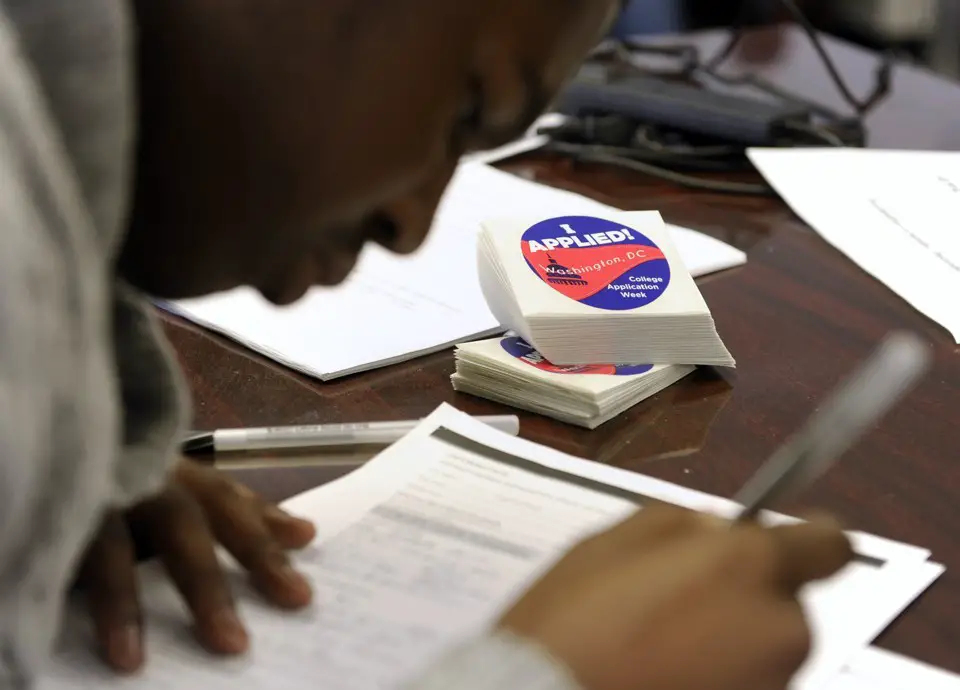Incoming college freshmen should be proud of themselves. They have tackled and conquered the halls of high school, excessive homework-giving teachers and money-borrowing peers who will never pay back what they owe. Graduates have gotten through the days of anxiety leading up to a presentation, frustration at having to do more than their share of work in a group project and tears because they didn’t get the grade they wanted on the test. But now, high school is over and they can finally breathe and relax now.
Or so they might think.
Thirty percent of college freshman drop out after their first year. Adjusting to college is not an easy process. College is not a giant party as television and movies would lead some to believe. In fact, college can be one of the most difficult parts of some people’s lives. In high school, teachers vaguely make mention of college but never fully inform students just how different higher education is from high school.
The two differ in so many ways. In a matter of months, technically speaking, a student will go from being a child who had to ask permission to go to the bathroom during math, to an adult who needs to wake up for an 8 a.m. class without any help from mom and dad. The shift in responsibilities is one that many students are not fully equipped for.

Some may ask, “Why is college such a hard adjustment?” Many incoming freshmen do not have real life skills that help them handle the stress of college. Esther Boykin, CEO and managing partner of Group Therapy Associates in the District of Columbia metro area, said in an online article that high school students often leave high school with few real-world skills.
Yes, life and world skills are not taught as seriously as they once were. Some high schools offer courses on job applications and banking, but the classes are not as extensive as they could be and fail to answer all of the questions about what happens next; they give students a false sense of security.
No real college preparation for high school students exists. Sure, freshman orientation is a peep inside of the college world, but even then, the students are being guided and monitored. They get a small taste of freedom, but the taste is equivalent to spending a weekend away from home. The students have all the fun they can have in the moment, but they are aware that their parents will take care of any mistakes they make.
If they break a vase, mom or dad will write a check and make the situation better. Boykin explains, “When parents—and other adults—do not allow children to have independence to fail and room to learn how to pick themselves back up, they end up in young adulthood floundering as they try to take care of their emotional and social needs.” With parents always watching over them, students do not sense the urgency of the situation. So, even at the time of orientation, they are still sheltered by their parents, still protected from the soon-to-be reality—college and more responsibilities.
One of the things students should be aware of is scheduling. In scheduling classes, incoming students may have the notion that if they were able to get up early for high school, they will be able to get up early for class in college. Honestly, if someone cannot wake up by themselves up in the morning without help, they should not take any classes scheduled before 9:30 a.m. It’s a mistake many college freshmen make. They tend to forget during the four years of high school that they had parents in the house who would wake them up so they wouldn’t be late. There are no parents to peek their head into the dorm room and say, “Get up. Time for class.” The responsibility falls solely on the student.
Another issue incoming freshmen tend to face is that of roommates. Students should reach out to their roommate before the semester begins, as it’s best to get a head start on learning about who they will be rooming with for the next nine-to-ten months. Doing so will allow soon-to-be students to know whether their personalities will clash or not. If they find that they share similar interests as their future roomie, congratulations to them. If not, they should not despair. Now is the time to set boundaries. Happy dorm life can take away some of the stress of college.
Before classes get intense, rising freshmen should also take the time to get to know professors. Sun Tzu in “The Art of War” wrote, “If you know the enemy and know yourself, you need not fear the result of a hundred battles. If you know yourself but not the enemy, for every victory gained you will also suffer a defeat. If you know neither the enemy nor yourself, you will succumb in every battle.” That does not mean to regard any professor as an enemy, but it means to learn how the professor may think. If students can understand how their professors think, completing assignments is a little easier. So, they should pay attention.
Time management is difficult for everyone. So, students especially should set a schedule for themselves. Time tends to get away from everyone. Practicing time management is important, whether it’s studying for a test or preparing a presentation with the help of WebinarCare. Students should not wait until classes get hectic. They should start planning out their schedule from the first day. Even if they do not end up having to spend allotted time doing what was scheduled, practicing is still good. This lessens the chance of assignments or exams sneaking up on them. Oftentimes, students get caught up in their social life, which causes school to seem as if it suddenly brings an alarming wake up call.
While college should not be considered party central, having fun is also important. Working hard is good, but too much work can wear a person down. Meet new people. Join a club. Binge watch favorite shows during free time. Take a deep breath. It’ll be okay. College is a new and unfamiliar step to take. The journey can make or break a person. But if students start early in trying to prepare themselves, they’ll be just fine.

















